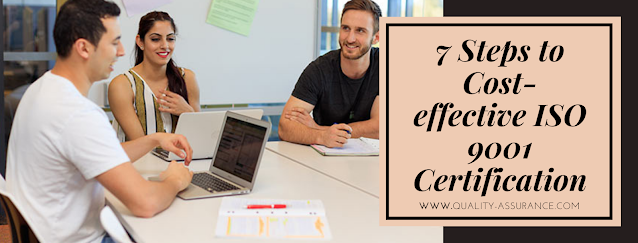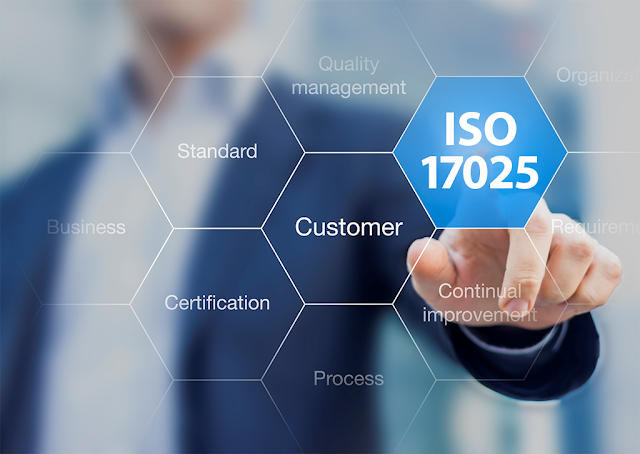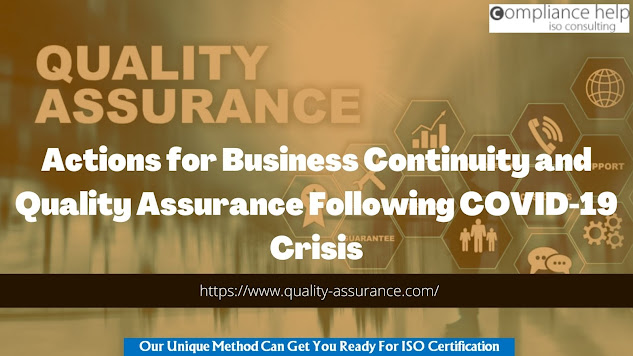7 Steps to Cost-effective ISO 9001 Certification
ISO 9001 certification is
a necessity for most businesses in their competitive industries because
of its relevance in validating a business’s quality management framework. Every
ISO standard is subjected to revisions every 5 years, ensuring the
standard changes according to new market trends, policies, or
expectations of the customers. Therefore, even though ISO certification
implementation can be a complex process, businesses seek to achieve it often with
the help of dedicated consultants.
Many
small and large businesses seek ISO certification to demonstrate their quality
excellence, and here we have mentioned some simple ways to get your business
ISO 9001 certified.
Understanding ISO 9001 Requirements
The
first step is preparing for ISO 9001 certification, which requires knowing the
standard well. The certification requirements define the quality management
system or QMS aspects that the business should consider. The certification requirements
are based on the quality expectations of the customers and the objectives of
the business, and adhering to each requirement is essential.
Therefore, you need to be aware of them.
Choosing the Right ISO Consultant
It
is advisable for businesses, especially small ones that lack a dedicated quality
assurance team, assurance to get external assistance. There are several tasks
involved in the certification process that only dedicated quality assurance
experts can handle. Therefore, hiring ISO 9001 consultants with hands-on
experience with quality assurance is recommended. They will help you with the
distinct tasks of the certification process, such as document development, gap
analysis, resource allocating, staff training, auditing, and so
on.
Gap Analysis
You
need to understand that the QMS should be implemented by complying with the
defined requirements of the ISO 9001quality management model. After starting the certification
process and hiring a consultant, you need to evaluate what is lacking in your
present QMS. This means the aspects which are not present but are needed
to meet the ISO 9001 requirements. To find these aspects, you must conduct a
gap analysis with the help of your consultant. It involves assessing all your
business processes, agents, and interested parties in the QMS, and then find out
what should be done to convert the QMS into an ISO-certified system.
Document Preparation
The
fourth step is a crucial one in your certification, as it involves creating the
formal evidence of your modified QMS. You need to write down every aspect of
the QMS, the processes it involves, interactions between the processes, key performance
indicators) it addresses, and how many employees operate the QMS. The
documentation should be done consciously, considering how the QMS will add
value to each process in your business. Therefore, guidance and training from
the consultants are needed at this stage.
Implementation of the QMS
Based
on the gap assessment and the documented QMS, you need to step ahead and
implement the system into the core of your business. You need to induce the
people of the organization to start accepting the modified QMS and
prepare a devoted team to supervise the implementation process. The QMS should
underpin the ISO standard requirement and support your industry’s best
practices and principles for quality management. You need to confirm the QMS to
ensure that it is highly effective in improving the quality of products or
services, as well as delivering positive experiences to the customers.
Internal Auditing
Along
with the consultants, find some quality auditors to help your business with
internal auditing before the final certification stage. You should
find an ISO consultancy that can provide both consultants and auditors
Auditing is important because that will help you understand the certification
readiness of your QMS. The auditors will evaluate the structure, processes, and
interactions of the QMS within business operations and ensure everything
conforms to the stated requirements of ISO 9001 certification.
In short, they will help you know whether your QMS is compliant with the
standard and if not, they will suggest the corrections required to make it
compliant.
Final Certification
When
you have ensured your QMS follows the ISO 9001 requirements with an internal
audit, then find an approved certification body. The consultants can help to select
a trusted body). The body will conduct a stage audit called external
certification to ensure your QMS is implemented as ISO requires. If you pass
this audit, they will grant certification.
Concluding
Thought
ISO certification is a complex process. However, with the right team or partner beside you, things get easier. The role of ISO consultants is praised and demanded because of these reasons. They can help you understand the ISO 9001 standard, guide you through how to document the QMS, train your employees to implement the QMS, and audit it for compliance.
Also Read: 4 Key Difficulties Faced by Businesses When Achieving ISO 9001 Certification
Contact Details:
Business Name: Compliancehelp Consulting, LLC
Email Id: info@quality-assurance.com
Phone No: 877 238 5855




Comments
Post a Comment